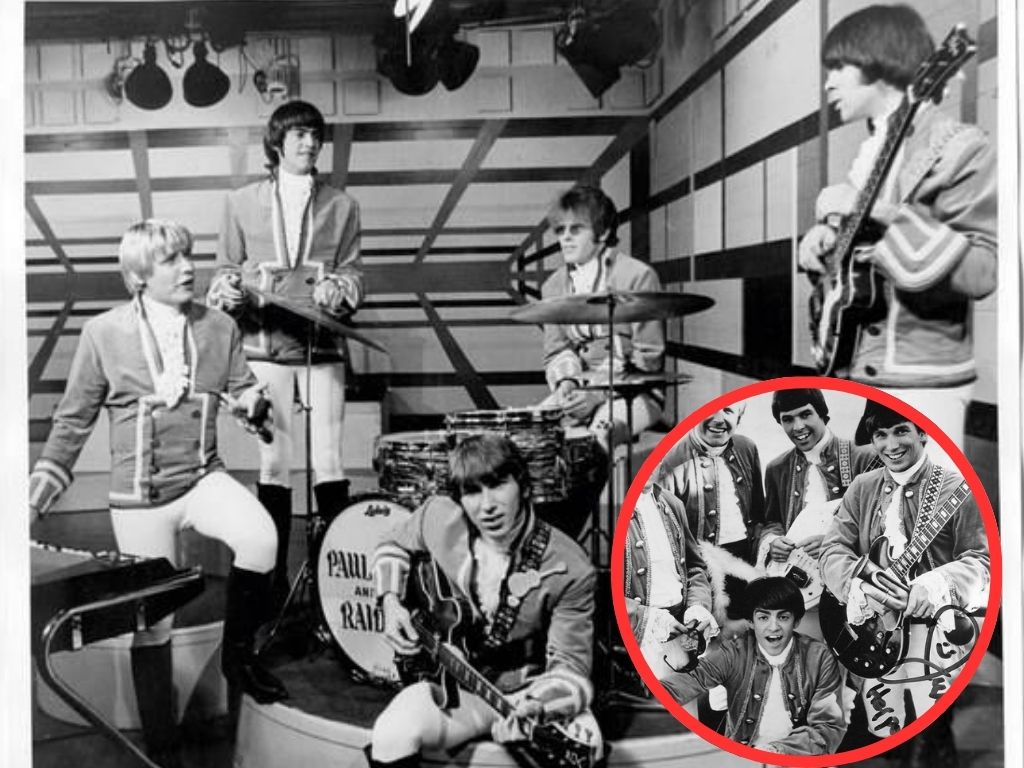
A Lament Echoing Through Time: The Enduring Spirit of the Cherokee Nation
Ah, dear friends, settle in and let’s cast our minds back to a time when melodies truly told stories, when a song could pierce through the pop veneer and resonate with something deeper. We’re not talking about fleeting trends here, but about a record that, for many of us, became an unexpected, yet deeply felt, anthem. I’m speaking, of course, of Paul Revere & The Raiders‘ poignant 1971 smash hit, “Indian Reservation (The Lament of the Cherokee Reservation Indian).”
This wasn’t your typical carefree rock and roll fare from the band who often dressed in Revolutionary War garb and brought a sense of playful energy to the stage. No, this was something altogether different. Released in May 1971, this powerful track quickly climbed the charts, reaching the coveted #1 spot on the Billboard Hot 100 on July 24, 1971. It spent an impressive 22 weeks on the chart in total, becoming not only Paul Revere & The Raiders‘ first and only number-one hit but also their last Top 20 song. In Canada, it peaked at #2 for four weeks. This single was a phenomenal success, earning RIAA gold certification on June 30, 1971, for selling over a million copies, and later being certified platinum for another million.
Now, for the story behind it, we must delve into the fascinating, albeit somewhat fabricated, origins. The song was written by the incredibly prolific songwriter John D. Loudermilk, known for hits like “Tobacco Road.” The initial version, titled “The Pale Faced Indian,” was recorded by country singer Marvin Rainwater in 1959. Rainwater, who was one-quarter Cherokee himself, even performed in Native American-themed costumes. However, that release largely went unnoticed. A decade later, in 1968, British singer Don Fardon covered it, changing the title to “Indian Reservation” and achieving a significant hit, reaching #20 in the US and #3 in the UK.
But it was The Raiders‘ rendition that truly captured the public’s imagination. The popular, though entirely untrue, story often repeated by radio legend Casey Kasem on American Top 40 was that Loudermilk wrote the song after being snowed in and held captive by a group of angry Cherokee men who demanded he tell their story. Loudermilk, a self-professed prankster, later admitted to making up this elaborate tale. The truth is perhaps less dramatic, but the song’s intent remained clear.
The meaning of “Indian Reservation (The Lament of the Cherokee Reservation Indian)” is a heartfelt, though at times simplistic, lament for the displacement and suffering of the Cherokee Nation. It speaks of the forced removal, the loss of traditional ways of life, and the enduring spirit of a people stripped of their heritage. Lines like, “They took the whole Cherokee Nation / Put us on this reservation / Took away our ways of life / The tomahawk and bow and knife / Took away our native tongue / And taught their English to our young” paint a stark picture of cultural destruction.
While the song contains some stereotypical imagery (such as references to tipis and papooses, which are not historically associated with the Southeastern Woodlands Cherokee culture), its underlying message of injustice and resilience resonated deeply with listeners. It arrived at a time in the early 1970s when the Civil Rights Movement had opened doors for broader social consciousness, and the American Indian Movement (AIM) was gaining prominence. Books like Dee Brown’s Bury My Heart at Wounded Knee had also brought the tragic history of Native Americans to the forefront.
For Paul Revere & The Raiders, a band known for their garage rock energy and playful image, this song marked a distinct departure. Vocalist Mark Lindsay’s haunting delivery, coupled with the minor key melody and sustained chords, imbued the track with a solemnity that was both unexpected and profoundly effective. It showcased a different side of the band, a mature understanding of a weighty subject, even if the narrative was simplified for pop consumption.
Looking back, “Indian Reservation” stands as a testament to the power of music to highlight social issues and evoke empathy. It might not be a perfect historical account, but its emotional core and the conviction in Lindsay’s voice made it a song that stirred hearts and minds, reminding a generation of a painful chapter in American history. It became a piece of our collective memory, a reflective moment in the vibrant tapestry of 70s rock, and a song that still echoes with a melancholic beauty today. It reminds us of a time when the airwaves could carry not just catchy tunes, but also a call for understanding and remembrance.